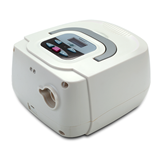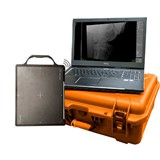Are those kinds of comments starting to creep more and more into patient consultations? Whether you approve of it or not, your patients are turning to the internet for diagnosis in ever-growing numbers. You can't stop it, so you may as well be effectively armed to deal with it. So here is all you need to know about Dr Google.
What is Dr Google?
It's every online medical forum designed to offer medical self-diagnosis via symptom analysis and, in most cases, treatment. Some of these are genuine and reasonably reliable with real doctors offering real advice. Some purport to be run by real doctors. The worst – and most dangerous - are open to anyone who cares to tell you what's wrong with you. Some of the most popular forums (and that doesn't necessarily mean the most reliable) derive income through paid advertising. If this is their primary motivation the accuracy of medical information they impart is largely irrelevant. All are potentially dangerous in their mix and match approach to medical conditions. All have played their part in the problems you now face.
Welcome to cyberchondria
Yes, the internet has spawned all kinds of weird and wonderful new words; cyberchondria is the latest. And while it may be harsh to judge those who sift through online symptoms until they find something approximating their own, the ease of medical information has led to heightened and, some would say, obsessive health awareness. In the old days (pre internet) we got a sniffle or mild headache and battled on until it disappeared. Now we're cross-referencing everything from dengue fever to brain tumours 'just to be sure.' It's not healthy, but it's here.
Know your forums
The more aware you are of the main medical forums (and their accuracy) the faster you can discredit an online diagnosis if it fails to match your own. Remember, any patient told they have cancer when they don't is going to be a little hysterical. They're going to take some real convincing and more than a little reassurance. If you can quickly shoot their online diagnosis down in flames with an accurate diagnosis of its source, you'll have a calm patient ready to listen to what's really wrong with them, if anything.
Encourage and recommend
Try as you might, you can't stem the flow of patients seeking advice online. What you can do is advise them on the reliable forums and the ones to avoid. You can even go so far as to encourage your patients to take a more vested interest in their health through intelligent and diligent use of these sites. In the main you won't lose any business because of it – self-diagnosis or not, all answers ultimately lead to you.
Just be very wary of the opposite of the cyberchondriacs; those searching for any fact to confirm they don't have what they think they have. Any patient with a history of denial is a potential victim of searching themselves into a life-threatening situation.
Be especially patient with new mothers
It's easy to understand why new mothers are among the more prolific visitors to Dr Google. There's no manual for raising a baby and high degrees of anxiety and paranoia are normal for new mothers overanalysing the slightest sign of ill health. Again, the more equipped you are to assess the source of their information, the faster you can allay any fears and offer an accurate diagnosis.








-160x160-state_article-rel-cat.png)






